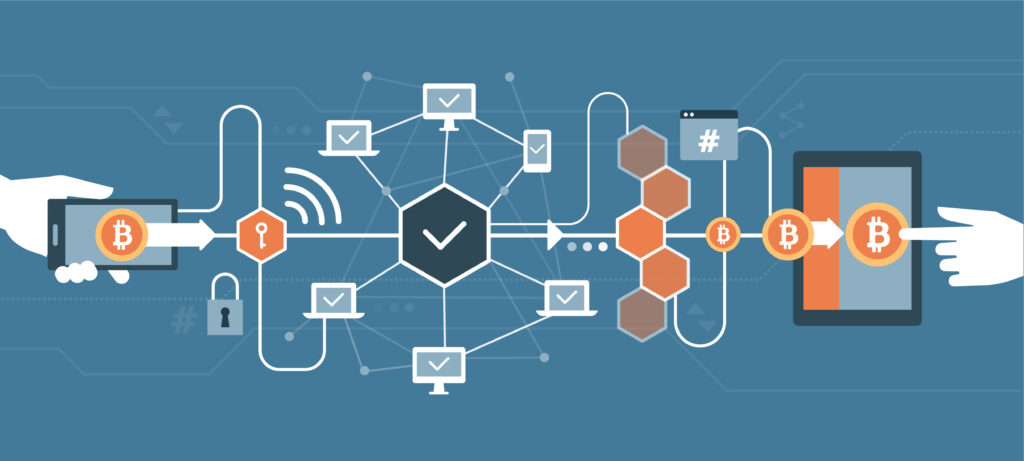The advent of blockchain technology is transforming the landscape of digital gaming, particularly in the realms of in-game economies and player ownership. As players seek more control over their virtual assets, blockchain offers a decentralized solution that empowers gamers to truly own their items, currencies, and experiences. This shift not only enhances the gaming experience but also introduces new economic models that challenge traditional gaming paradigms. In this article, we will delve into how blockchain is changing in-game economies and player ownership, exploring its implications for both developers and players alike.
In the following sections, we will examine the fundamental principles of blockchain technology and how they apply to gaming. You will learn about the concept of non-fungible tokens (NFTs) and their role in establishing true ownership of in-game assets. Additionally, we will discuss the benefits of decentralized marketplaces and how they enable players to trade and monetize their virtual possessions securely. By understanding these concepts, you will gain insight into the future of gaming and the potential for players to shape their own economic destinies.
As we navigate through the intricacies of blockchain in gaming, we will also highlight real-world examples of games that have successfully integrated this technology. These case studies will illustrate the tangible benefits and challenges faced by developers and players in this evolving landscape. So, if you’re curious about how blockchain is reshaping the gaming industry and want to stay ahead of the curve, keep reading to discover the exciting possibilities that lie ahead!
Blockchain technology is revolutionizing the way in-game economies function and how players perceive ownership of digital assets. This transformation is driven by the unique characteristics of blockchain, such as decentralization, transparency, and security. In this article, we will explore various aspects of this change through several key subtopics.
Decentralization of In-game Assets
One of the most significant impacts of blockchain on in-game economies is the decentralization of assets. Traditionally, game developers have full control over in-game items, which can lead to issues such as asset loss or unfair practices. With blockchain, players can truly own their assets, as these items are stored on a decentralized ledger. This means that players can trade, sell, or use their assets across different games without the risk of losing them due to developer decisions.
This shift not only empowers players but also creates a more vibrant in-game economy. Players can engage in peer-to-peer transactions, fostering a sense of community and collaboration. As a result, the value of in-game assets can increase based on supply and demand, similar to real-world economies.
Enhanced Security and Transparency
Blockchain technology offers enhanced security and transparency for in-game transactions. Each transaction is recorded on a public ledger, making it nearly impossible to alter or counterfeit assets. This level of security is crucial in preventing fraud and ensuring that players can trust the integrity of their in-game items.
Moreover, transparency allows players to verify the authenticity and ownership history of assets. This feature is particularly important in games where rarity and uniqueness play a significant role in asset value. Players can confidently invest in and trade assets, knowing that the information is accurate and tamper-proof.
Play-to-Earn Models
The emergence of play-to-earn models is another way blockchain is changing in-game economies. These models allow players to earn real-world value through their in-game activities, such as completing quests or participating in battles. By integrating cryptocurrencies and NFTs (non-fungible tokens), players can convert their in-game achievements into tangible rewards.
This shift not only incentivizes gameplay but also attracts a broader audience, including those who may not have previously engaged with gaming. As players invest time and effort into earning rewards, the overall economy within the game becomes more dynamic and engaging.
Interoperability Between Games
Blockchain enables interoperability between different games, allowing players to use their assets across multiple platforms. This concept challenges the traditional model where assets are confined to a single game. With blockchain, players can transfer their items, characters, and currencies between games, creating a more interconnected gaming ecosystem.
This interoperability enhances player engagement and retention, as players are more likely to invest in assets that have value across various games. It also encourages developers to create games that complement each other, fostering collaboration within the gaming industry.
Ownership and Control of Digital Assets
Player ownership of digital assets is a fundamental shift brought about by blockchain technology. In traditional gaming, players often do not have true ownership of their in-game items, as developers can revoke access at any time. Blockchain changes this narrative by allowing players to have verifiable ownership of their assets through unique cryptographic keys.
This ownership model empowers players to make decisions about their assets, including selling, trading, or even creating new content. As a result, players feel a greater sense of investment in their gaming experience, leading to increased loyalty and engagement.
Economic Models and Tokenization
Blockchain introduces new economic models through tokenization, where in-game currencies and assets are represented as tokens on the blockchain. This allows for more complex economic interactions, such as staking, lending, and yield farming within games. Players can earn rewards by participating in these economic activities, further enhancing the in-game economy.
Tokenization also enables developers to create unique economic systems tailored to their games. By designing specific tokenomics, developers can incentivize desired player behaviors, such as collaboration or competition, ultimately leading to a more engaging gaming experience.
Community Governance and Decision-Making
Blockchain technology facilitates community governance in gaming, allowing players to have a say in the development and direction of their favorite games. Through decentralized autonomous organizations (DAOs), players can vote on important decisions, such as game updates, asset management, and economic policies.
This level of involvement fosters a sense of ownership and community among players, as they feel their voices are heard and valued. It also encourages developers to be more transparent and responsive to player feedback, leading to a more collaborative gaming environment.
Challenges and Future Prospects
Despite the numerous benefits of blockchain in gaming, there are challenges to overcome. Issues such as scalability, regulatory concerns, and the environmental impact of blockchain technology need to be addressed for widespread adoption. However, as technology continues to evolve, solutions are being developed to mitigate these challenges.
The future of blockchain in gaming looks promising, with ongoing innovations and a growing community of developers and players embracing this technology. As blockchain continues to reshape in-game economies and player ownership, it is likely to create a more equitable and engaging gaming landscape.
| Aspect | Description |
|---|---|
| Introduction to Blockchain | Blockchain is a decentralized ledger technology that enables secure and transparent transactions. It allows for the creation of digital assets that can be owned and traded by players. |
| Player Ownership | With blockchain, players can truly own their in-game assets (like skins, weapons, and characters) as NFTs (Non-Fungible Tokens). This ownership is verifiable and transferable. |
| Decentralized Economies | Blockchain enables decentralized in-game economies where players can trade assets directly with each other without the need for intermediaries, enhancing the player-driven market. |
| Transparency and Security | Transactions on the blockchain are transparent and immutable, reducing fraud and ensuring that players can trust the value of their assets. |
| Interoperability | Blockchain allows for interoperability between different games, meaning assets can be used across multiple platforms, increasing their value and utility. |
| Play-to-Earn Models | Blockchain has given rise to play-to-earn models, where players can earn real-world value through gameplay, incentivizing engagement and investment in the game. |
| Challenges | Despite its benefits, blockchain in gaming faces challenges such as scalability, environmental concerns, and the need for user education regarding cryptocurrency and blockchain technology. |
| Future Outlook | The integration of blockchain in gaming is expected to grow, with more developers exploring its potential to enhance player experiences and create sustainable in-game economies. |



